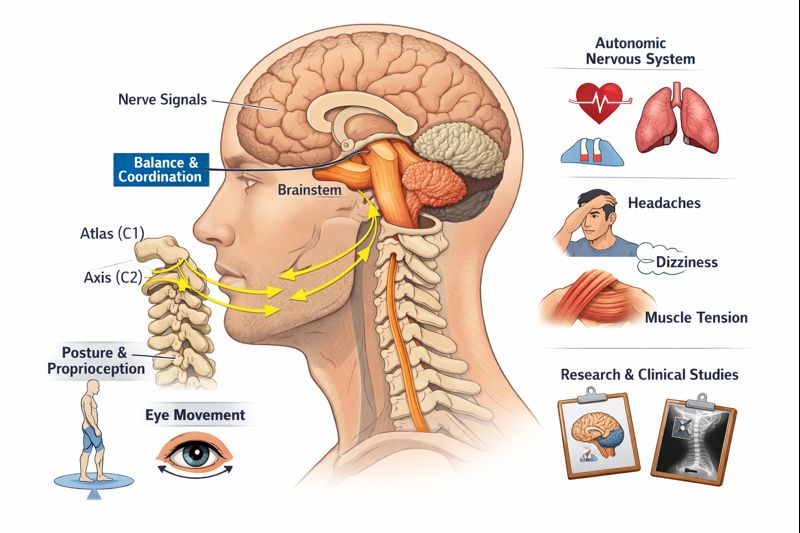
Good sleep plays a critical role in maintaining both physical and mental health. It affects everything from your immune function to your mood and cognitive abilities. However, modern lifestyles, stress, and even poor posture can disrupt the quality of sleep many people experience. Chiropractic care offers a non-invasive solution to improving sleep quality by addressing musculoskeletal issues, particularly those affecting the spine, which are often linked to sleep disturbances.
The Importance of Good Sleep
By downloading the Digital Patient Chart mobile app you can better control your patient portal.
Physical and Mental Benefits of Sleep
Sleep is a fundamental biological function that allows the body to recover and rejuvenate. During deep sleep stages, the body engages in vital processes like tissue repair, muscle growth, and protein synthesis, which contribute to overall physical health. Sleep also supports brain function, playing a role in memory consolidation and emotional regulation.
Lack of sleep or poor-quality sleep can lead to numerous health problems, including:
- Impaired cognitive function and memory.
- Weakened immune response.
- Increased risk of chronic conditions such as heart disease, obesity, and diabetes.
- Emotional instability and mood disorders like anxiety and depression.
Sleep and the Nervous System
Good sleep is closely tied to the functioning of the central nervous system (CNS), which includes the brain and spinal cord. The CNS is responsible for processing information and ensuring that the body functions smoothly. Poor posture, spinal misalignment, and nerve compression can affect the CNS, disrupting sleep and contributing to insomnia, sleep apnea, and restless sleep.
Chiropractic Care: An Overview
Chiropractic care focuses on diagnosing and treating mechanical disorders of the musculoskeletal system, particularly the spine. Chiropractors employ manual adjustment techniques to correct misalignments (also known as subluxations) that can affect the body's nervous system. When the spine is out of alignment, it can lead to discomfort, poor posture, and, significantly, poor sleep quality.
How Chiropractic Care Improves Sleep
Several aspects of chiropractic care can help enhance sleep quality:
Spinal Alignment: A properly aligned spine reduces physical stress on the body, particularly in areas like the neck and back, which are common culprits of sleep disruption. Misalignments can irritate the nerves, leading to muscle tension, pain, and discomfort during sleep. Correcting these misalignments relieves pressure on the nerves, allowing for a more relaxed, pain-free sleep environment.
Relief from Tension and Stress: Chiropractic adjustments can help alleviate stress and tension in the muscles surrounding the spine. Chronic stress often leads to muscle stiffness, which can interfere with your ability to fall asleep and stay asleep. By promoting relaxation and reducing muscle tension, chiropractic treatments can facilitate deeper, more restorative sleep.
Better Blood Flow: Spinal adjustments can improve circulation, ensuring oxygen-rich blood reaches the brain and other body parts more efficiently. This enhanced blood flow can reduce headaches and migraines, which are common barriers to achieving good sleep.
Pain Management: Chronic pain, particularly in the back, neck, and shoulders, can be a significant factor in poor sleep quality.
Chiropractic care is a non-invasive way to address the underlying causes of pain, such as disc problems, joint dysfunction, or muscle imbalances. Alleviating pain makes it easier for the body to relax and enter the deeper stages of sleep necessary for recovery and rejuvenation.
Sleep Disorders Linked to Spine and Posture
Posture and spinal health are closely related to several common sleep disorders, which chiropractic care may help address.
1. Insomnia
Insomnia is characterized by difficulty falling or staying asleep. Chronic pain, especially in the back and neck, can exacerbate insomnia, making it difficult for individuals to find a comfortable sleeping position. Poor spinal alignment can further irritate the nerves, contributing to muscle tension that prevents relaxation.
Chiropractic care helps by addressing spinal misalignments that may cause discomfort during sleep. Adjustments can reduce pain, promote relaxation, and improve sleep onset by enhancing comfort.
2. Sleep Apnea
Obstructive sleep apnea (OSA) occurs when the airway becomes partially or fully blocked during sleep, leading to breathing interruptions. While traditional treatment for sleep apnea includes CPAP machines or oral appliances, chiropractic care can complement these treatments by improving spinal and muscular alignment, particularly in the neck. Poor posture, especially in the cervical spine, can exacerbate airway obstruction during sleep.
Chiropractic adjustments, particularly in the upper cervical spine, can relieve tension in the neck muscles and help align the airway more effectively, potentially reducing the frequency of sleep apnea episodes.
3. Restless Leg Syndrome (RLS)
Restless leg syndrome is a neurological disorder that causes an irresistible urge to move the legs, particularly at night. While the exact cause of RLS remains unclear, spinal misalignments may contribute to nerve irritation and muscle tension in the lower body, exacerbating symptoms.
Chiropractic care can address these misalignments, improve circulation, and reduce the nerve interference contributing to RLS symptoms. By improving the overall function of the nervous system, chiropractic adjustments may help reduce the severity of RLS and improve sleep quality.
Furthermore, studies suggest that individuals who undergo regular chiropractic adjustments report improved sleep quality, reduced pain, and a greater sense of well-being. Chiropractic care not only addresses physical pain but also helps to manage stress, which is a key contributor to sleep disorders.
Chiropractic Care as a Natural Sleep Aid
Many individuals seek chiropractic care as an alternative to medications for sleep issues. Chiropractic care offers a natural solution that addresses the root causes of sleep disturbances rather than masking symptoms with sleep aids or painkillers. This is particularly important for individuals who prefer non-invasive treatment options without the side effects often associated with pharmaceuticals.
Moreover, chiropractic care is not limited to adults. Children and adolescents can also benefit, especially those with sleep issues linked to poor posture or sports injuries.
Conclusion
The importance of good sleep cannot be overstated, as it affects nearly every aspect of health. Chiropractic care offers a holistic approach to improving sleep quality by addressing the root causes of sleep disturbances, such as spinal misalignments and muscle tension. Through regular adjustments, posture correction, and lifestyle changes, chiropractic treatment can help individuals achieve deeper, more restful sleep without the need for medication.
By supporting the body’s natural healing processes and improving nervous system function, chiropractic care may be the key to unlocking better sleep and overall well-being.









Leave a comment